Text










Predator 2 (Stephen Hopkins, 1990).
77 notes
·
View notes
Text







Treat Williams as Roger Mortis in Dead Heat (1988) Dir. Mark Goldblatt
#Treat Williams#Dead Heat#Mark Goldblatt#dilfedit#dilfgifs#dilfsource#dailyfilmsource#dailyflicks#filmedit#filmgifs#My Gifs#userrobin#filmtv#usertom#mediagifs#movieedit#horrorgifs#horroredit#fyeahmovies#Body Horror
174 notes
·
View notes
Text

#Dead Heat#The Vineyard#Mark Goldblatt#Terry Black#Treat Williams#Joe Piscopo#James Hong#William Rice#Harry Mok#Douglas Kondo#James Marlowe#80s
9 notes
·
View notes
Text
By: Mark Goldblatt
Published: Feb 7, 2023
Several years ago, in the pre-pandemic world of in-person meetings, a newly hired colleague at Fashion Institute of Technology proposed an LGBT-themed sociology course before the School of Liberal Arts. This is a necessary step in getting the course approved by the college-wide curriculum committee. It’s a time for constructive feedback and occasional tweaking before the final committee vote.
It was a good course. The proposal was clear and concise, indicating not only a command of the relevant literature but a sensitivity to students’ interests, expectations, and ability to handle the workload. But I noticed an apparently minor, easily correctable issue. Among the learning outcomes listed was a requirement that students develop a greater acceptance of LGBTQ+ perspectives and rights. That struck me as problematic. I happen to think that such acceptance is a good thing, but to stipulate it as a learning outcome raises a knotty question. If a student masters the course material, turns in the required work, and passes the exams, but doesn’t exhibit that acceptance, is he going to fail?
After expressing my general admiration for the course, I raised my misgiving in the following way (and this is nearly an exact quote): “We need to keep in mind that we’re a state university. Our mission is to pursue, ascertain, and disseminate objective truth, and to equip our students to do the same. Given that mission, I don’t think we can list a learning outcome that requires students’ assent on a matter of personal morality. The other learning outcomes are fine. You don’t need that one, so I’d just cut it.” My colleague was fresh out of graduate school and not yet tenured, which (theoretically) put her in a vulnerable position. Nevertheless, she became apoplectic; so angry, in fact, that she had difficulty getting out her first sentence. “I can’t believe people still think that way!” she spluttered. “Queer Theory has deconstructed objectivity!”
Her words hung in the air as I glanced around the room. Not a single faculty member, not even those in math or sciences, seemed fazed by her categorical statement. Since I was a tenured professor, I was reluctant to debate an untenured colleague during a school meeting. So, I let the matter drop. The course was approved without revision by the School of Liberal Arts, and went on to gain approval by the curriculum committee. And that is how my college got into the business of winning converts.
That moment haunts me as I begin my final semester before retirement—not only because faculty on the state payroll have deliberately crossed the critical line from pursuing the truth to professing The Way, but also because the Enlightenment sensibility that finds such mission creep objectionable seems to be passing from the scene. The “deconstructive turn”—as the critic Christopher Norris once called it—is nothing more than a verbal sleight-of-hand. It invites us to tease out secondary and tertiary senses of words to show how a text contradicts what it seems to be saying, free-associate our way to philosophical banalities or outright non-sequiturs, and finally glaze the mishmash with a layer of impenetrable jargon. If a reader is foolish enough to attempt to make sense of what is being said, he’ll get bogged down before he can figure out nothing is being said at all.
When Jacques Derrida, the renowned “father of deconstruction,” was awarded an honorary degree by Cambridge University in 1992, 20 of the world’s preeminent philosophers—including W.V. Quine and Ruth Barcan Marcus—signed a letter of protest, in which they argued:
M. Derrida describes himself as a philosopher, and his writings do indeed bear some marks of writings in that discipline. … In the eyes of philosophers, and certainly those working in leading departments of philosophy throughout the world, M. Derrida’s work does not meet accepted standards of clarity and rigor. … M. Derrida seems to us to have come close to making a career out of what we regard as translating into the academic sphere tricks and gimmicks similar to those of the Dadaists. … Many French philosophers see in M. Derrida only cause for embarrassment, his antics having contributed significantly to the widespread impression that contemporary French philosophy is little more than an object of ridicule.
The claim that Queer Theory has “deconstructed objectivity” means only that a certain number of academic performance artists have doodled with a cluster of words related to the concept of objectivity in order to gain university employment, win friends, and influence a distressingly large number of gullible fans. But no epistemological breakthrough has come of their efforts: if it had, it would be self-refuting since it would consist of an objective truth about the impossibility of objectivity. (At a lecture I attended 40 years ago, a debonair British postmodernist stated that Derrida had shown us how it was possible to formulate a consistent argument with a contradiction in it. When I inquired how, in that case, we could recognize an inconsistent argument, the question was met with actual hisses from his acolytes. I’m still waiting for an answer.)
Objectively true statements are still made on a regular basis. The statement “Objectively true statements are still made on a regular basis” is itself objectively true. And Queer Theorists make objective truth claims all the time—as when they cite statistical evidence of harms visited upon the LGBT community or proving the reality of climate change. One of the silent faculty members at the meeting I mentioned, also near retirement, had devoted his entire distinguished career to combatting the effects of global warming. You’d think he’d be miffed at the suggestion that such effects were not objectively real. But no, he just sat in silence like everyone else.
Either he didn’t understand or didn’t take seriously the implications of what our new colleague was saying. The latter possibility seems the far likelier one. My sense, based on hundreds of informal conversations I’ve had with STEM faculty, is that people working in the hard sciences tend to roll their eyes at the alleged insights of postmodernism. They inhabit a world in which truth is still gauged by correspondence between belief and reality, and in which reality exists independently of our beliefs about it. Generally speaking, they don’t give a rat’s ass about discourse communities and meta-narratives. They want to know if the equations balance, if the instruments work, and if their hypotheses match empirical outcomes. In other words, they are interested in discovering if what they believe to be true is objectively true. They are certainly not interested in the ethnicity, sexuality, or gender identity of the people making truth claims.
Put all of that together, and you’ve got the makings of a schism. The humanities and social sciences are undergoing a mission reversion—they’re returning to a pre-Enlightenment view of the purpose of higher education. Prior to the Enlightenment, universities were sites of religious instruction that trained clergy. Harvard was founded in 1636, a mere six years after the settlement of Massachusetts Bay, to ensure that future generations of New England Puritans would be served by learned ministers. That goal is found among Harvard’s original “Rules and Precepts”:
Let every Student be plainly instructed, and earnestly pressed to consider well, the maine end of his life and studies is, to know God and Jesus Christ which is eternal life (John 17:3) and therefore to lay Christ in the bottome [i.e., at the base of the boat, to keep it steady in the water], as the only foundation of all sound knowledge and Learning.
That’s a version of what we’re seeing with the rise of the subjectivist movement in the humanities and social sciences. It is a new secular faith, a version of The Way. Instruction in radical progressive curricula is baptism by accreditation. It’s witness and testing. You gather for three hours a week to dwell in the spirit, commit yourself to individual rituals and collective causes, despair the fallen state of humanity, call out and cast out demons, immerse yourself in sacred texts and memorize venerable chants, then venture forth to spread the gospel. The end is performative, sacramental. Let me tell you the many ways you’re oppressed so that you may be a river to the masses.
Increasingly, that is the state of the humanities and social sciences at public universities in the US. Whatever you think of that development, it signals an existential crisis for higher education because instruction in the STEM fields at American universities remains traditional, objectively focused, and globally competitive. The reversion of the humanities and social sciences to religious preparation cannot coexist indefinitely with the Enlightenment mission of STEM instruction. Something has to give.
What, for example, becomes of science textbooks that report that only female mammals give birth? (Pity the poor seahorse, hitherto famous as the only species in which the male gives birth. But for how long?) You cannot be told in your morning sociology seminar that the pursuit of objectivity is an instrument of white supremacist culture, which must therefore be deconstructed, and then be told in your afternoon biology class that identical twins are objectively always the same sex.
It’s natural to expect the demand for severing ties to come from the professoriate on the STEM side, from a desire not to be sidetracked in their pursuit of objective truth. More likely, though, as evidenced by that liberal arts meeting at FIT, the demand will come from the humanities and social science side, caused by the unbearable adjacency of reality-based standards and scholarship to the postmodern insistence that the demand for objectivity is oppressive.
Entrance into STEM fields requires rigorous standards of assessment, as does progression and graduation. Rigorous standards of assessment, however, don’t produce equity or (objectively!) diverse student populations. Asian students are currently overrepresented in STEM, black students underrepresented; male students are overrepresented, female students underrepresented. According to the tenets of progressive activism, demographic imbalances of that nature constitute de facto proof of racial and gender bias since in an unbiased system every demographic would be proportionally represented. How long will student activists, encouraged by humanities and social science faculty, tolerate this alleged injustice on their campuses?
The disintegration of academia is coming. Whichever side precipitates the break, it will be a necessary development. Higher education is a serious intellectual endeavor, and nothing is less intellectually serious in contemporary academia than the suggestion that the pursuit of objectivity has been discredited. Empirical observation, mathematical inquiry, inductive and deductive reasoning, and falsifiability are the sine qua nons of higher education. As courses of study in the humanities and social sciences depart from such things, they cease to be higher education in the Enlightenment sense.
[ Via: https://archive.is/vQvgg ]
==
It's pivotal moments like this that inform what comes next. That realization something was really wrong here, with that hesitation, that second-guessing, that telling the truth might upset them, that it would just be easier to let this one slide, that instinct to just go along to get along, and the creeping recognition a group delusion was going on.
Who would have thought that the downfall of western academia could be powered by the worst, most pretentious and puerile French philosophy which can be encapulated as an academic formalization of the Equivocation Fallacy, and language games worthy of a 7 year old who just discovered a book of knock-knock jokes?
It was a mistake to think that nobody would take this seriously. It was a mistake to think that it wouldn't leak out of the bogus Fantasy Studies domains within Humanities which they'd invented and credentialed themselves in. And it was damn sure a mistake to give them a seat at the grown-ups table as far as knowledge claims and knowledge production.
To paraphrase Sam Harris, those who reject objective reality belong at the margins of our societies, not in our halls of knowledge.
Denying objective reality should be regarded as an announcement they do not live in it. This is a definition of delusional, not a definition of intellectual.
#Mark Goldblatt#objective truth#objective reality#objectivity#postmodernism#deconstruction#word games#language games#language manipulation#subjective reality#lived experience#science#STEM#corruption of education#corruption of knowledge#Jacques Derrida#subjectivism#postmodern philosophy#postmodern nonsense#Enlightenment values#Enlightenment#evidence#reason#religion is a mental illness
25 notes
·
View notes
Text

7/6/23
THE PUNISHER, directed by Mark Goldblatt, 1989.
6 notes
·
View notes
Photo

Movie #8 of 2023: Predator 2
Lieutenant Mike Harrigan: “You're rippin' my dick off and shovin' it up my asshole!”
#predator 2#action#horror#sci fi#stephen hopkins#jim thomas#john thomas#alan silvestri#peter levy#mark goldblatt#bert lovitt#english#35mm#65mm#1990#08#ghanaese
3 notes
·
View notes
Text
Horror Movie Review: Dead Heat (1988)
While LAPD detectives Roger and Doug are investigating a spree of crime committed by dead criminals, Roger is killed. He is brought back to life by a resurrecting machine used on these criminals. Then the real case begins…
Dead Heat is a 1988 American buddy cop action zombie comedy film directed by Mark Goldblatt. Detectives Roger Mortis and Doug Bigelow are called to the scene of a rather violent jewellery store robbery. The robbers take on a squadron of police in a messy shootout, but neither seems affected when they are riddled with bullets. Thanks to the combined, albeit extreme measures of Mortis and Bigelow,…
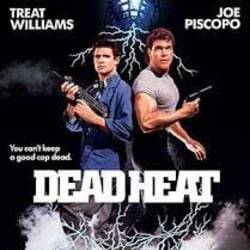
View On WordPress
#Beth Toussaint#Clare Kirkconnell#Darren McGavin#Dead Heat#Horror Comedy#Iron Cops#Joe Piscopo#Keye Luke#Lindsay Frost#Mark Goldblatt#Martha Quinn#Mel Stewart#New World Pictures#Professor Toru Tanaka#Robert Picardo#Ron Taylor#Shane Black#Terry Black#Treat Williams#Vincent Price#zombie
1 note
·
View note
Text


Dolph Lundgren in The Punisher (1989) dir. Mark Goldblatt
#userpedro#userbbelcher#filmgifs#dilfgifs#gifs#vietlad#usermichi#dolph lundgren#the punisher#usermack#gaybuckybarnes#userdaniel
620 notes
·
View notes
Text






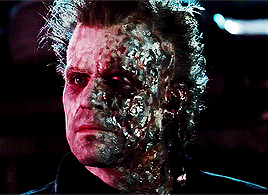



Dead Heat (1988) dir. Mark Goldblatt
"Hi, Doug. Welcome to zombie land."
#dead heat#filmedit#horroredit#actionedit#my gifs#movies#horror#action#comedy#zombies#horror comedy#flashing gif#treat williams#joe piscopo#vincent price#darren mcgavin#1980s#on tubi
259 notes
·
View notes
Photo

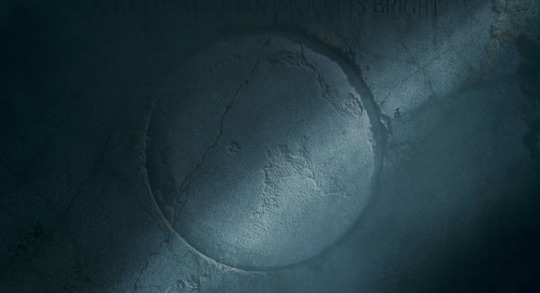

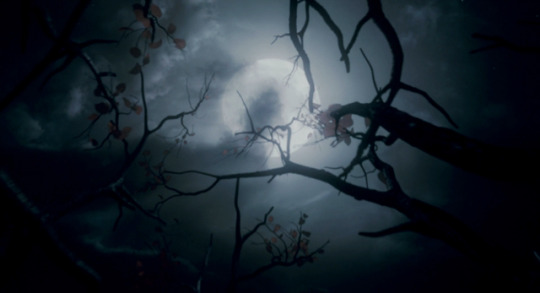

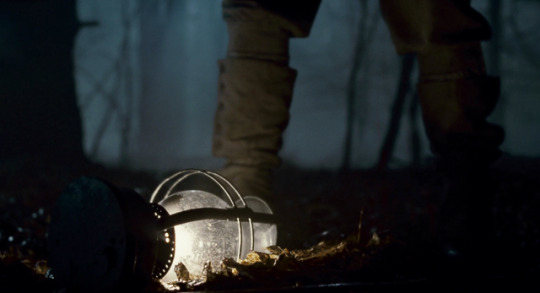
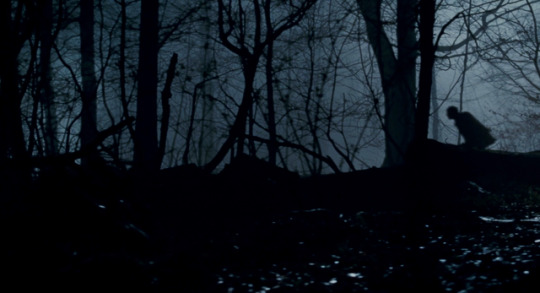

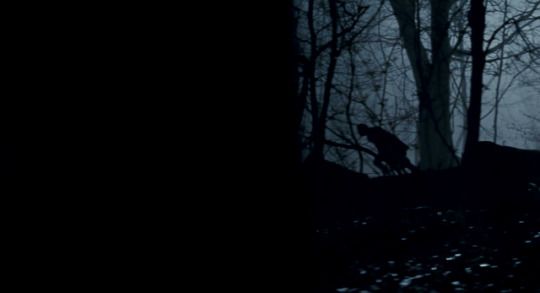
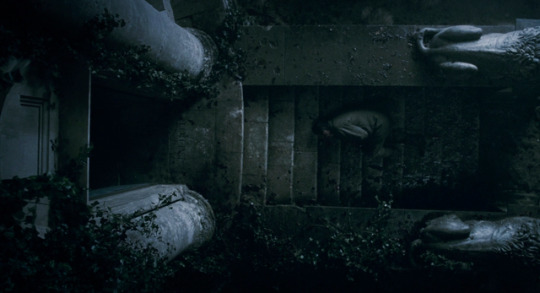
The Wolfman (Joe Johnston, 2010).
#the wolfman#the wolfman (2010)#joe johnston#shelly johnson#walter murch#dennis virkler#mark goldblatt#rick heinrichs#milena canonero
63 notes
·
View notes
Text





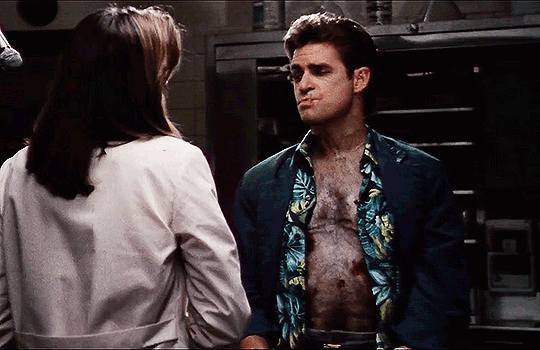


Treat Williams as Roger Mortis in Dead Heat (1988) Dir. Mark Goldblatt
#Treat Williams#Dead Heat#Mark Goldblatt#dilfedit#dilfgifs#dilfsource#dailyfilmsource#dailyflicks#filmedit#filmgifs#My Gifs#userrobin#filmtv#usertom#mediagifs#movieedit#horrorgifs#horroredit#fyeahmovies#userstream#This should be the last gif set
89 notes
·
View notes
Text

LOUIS GOSSETT JR (1936-Died March 29th 2024,at 87).American actor. He is best known for for his role as Gunnery Sergeant Emil Foley in An Officer and a Gentleman, he won the Academy Award for Best Supporting Actor and became the first black actor to win in this category.
Gossett is also well-known for his role as Colonel Chappy Sinclair in the Iron Eagle film series (1986-1995).
Gossett's other film appearances include Hal Ashby's The Landlord (1970), Paul Bogart's Skin Game (1971), George Cukor's Travels with My Aunt (1972), Stuart Rosenberg's The Laughing Policeman (1974), Philip Kaufman's The White Dawn (1974), Peter Yates's The Deep (1977), Wolfgang Petersen's Enemy Mine (1985), Christopher Cain's The Principal (1987), Mark Goldblatt's The Punisher (1989), Daniel Petrie's Toy Soldiers (1991), and Jasper, Texas (2003), and television appearances include Bonanza (1971), The Jeffersons (1975), American Playhouse (1990), Stargate SG-1 (2005), Left Behind: World at War (2005), Boardwalk Empire (2013), and The Book of Negroes (2015). Gossett appeared in the popular miniseries Roots, for which he won Outstanding Lead Actor for a Single Appearance in a Drama or Comedy Series at the Emmy Awards. Louis Gossett Jr. - Wikipedia
#Louis Gossett Jr#American Actors#Actors#An Officer and a Gentleman#Roots#Iron Eagle#Notable Deaths in March 2024#Notable Deaths in 2024
4 notes
·
View notes
Text
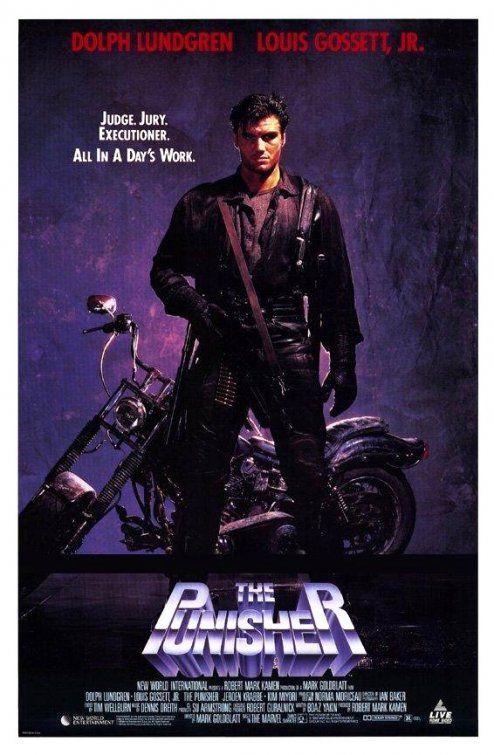
#HARPERSMOVIECOLLECTION
2024 MOVIE LIST
www.tumblr.com/theharpermovieblog
BAD MOVIE TRIPLE FEATURE pt.3
I re-watched The Punisher (1989)
Before Thomas Jane, before Ray Stevenson, before Jon Bernthal, before the MCU....there was this.
Frank Castle's family is murdered and he is presumed dead. Soon he returns to seek revenge on criminals as The Punisher.
Director Mark Goldblatt only directed three things. 1988's "Dead Heat", an episode of the 90's kid's show "Eerie Indiana", and This first ever film version of Marvel Comic's The Punisher. Goldblatt built much more of a career as a film editor.
His version of The Punisher is definitely a "So Bad It's Good" movie.
The plot here is minimal, barely brushing upon Frank Castle's backstory and diving quickly into the punisher actively killing mobsters. There's a basic story about a war between Japanese and Italian mob bosses resulting in stolen children.
But, don't let a simplistic plot or bad writing sway you from watching this. I watch a lot of bad movies and the ones that fall into "so bad they're good" are few and far between. When one is as solid as this, I get excited. Maybe overly excited. Maybe because I watched two other bad movies this week, which were truly boring and awful, I found this to be more entertaining than it actually is. Who knows?
Look, this won't change your life or be the best shitty action flick out there, but if you like "bad" movies, you should definitely take a look at this one.
Dolph Lundgren plays a goth/greaser style Punisher. He broods, he makes bad one-liner jokes, he kills people and he has a painted on beard. It's a simple character that's not hard to root for, and Lundgren pulls it off. He doesn't need to do much acting.
The movie has plenty of murder and mayhem and R-rated 1980's goodness. There's stabbings, shootings, slit throats and explosions. "The Punisher" moves at a quick pace, ignoring a solid foundation and almost dropping us into the middle of a movie. If nothing else, it's constantly moving from exciting sequence to exciting sequence. Not all those sequences are great, but they don't slow anything down when they're bad. They're almost better when they're bad.
Yes, this movie is certainly not good. It feels unfinished and not well thought out. But, for all it leaves out, it makes up for it with a few good unintentional laughs and an action movie pace that keeps things fun. The Punisher isn't trying to go high concept and not delivering. It's not attempting a serious drama despite the lack of talent and style to pull it off. It's just nonsense that's fun to watch, which is what turns a "Bad" movie into a "So Bad it's good" movie.
2 notes
·
View notes
Photo

Invaders from Mars will be released on 4K Ultra HD, Blu-ray, and DVD on July 11 via Ignite Films. Celebrating its 70th anniversary, the 1953 science fiction film was the first feature to show aliens in color.
William Cameron Menzies (Things to Come) directs from a script by Richard Blake. Jimmy Hunt, Helena Carter, Arthur Franz, Morris Ankrum, Leif Erickson, and Hillary Brooke star.
Invaders from Mars has been newly restored in 4K from the original camera negative. Special features are listed below.
Special features:
Interviews with actor Jimmy Hunt, director William Cameron Menzies’ biographer James Curtis, and Menzies’ eldest granddaughter Pamela Lauesen
Featurette with filmmakers John Landis and Joe Dante, editor Mark Goldblatt, special visual effects artist Robert Skotak, and film preservationist Scott MacQueen
2022 introduction by filmmaker John Sayles at Turner Classic Movies Festival
Alternate ending and extended planetarium scene from Alternate International version (restored in 2K)
Before/after clips of restoration with film restoration supervisor Scott MacQueen
Image gallery with press book pages and photos from the restoration process
Original trailer (restored in 4K)
2022 trailer
youtube
On a dark and stormy night, a young boy, David McLean (Jimmy Hunt), observes what appears to be a flying saucer crash-landing in his town. Shortly thereafter, the grown-ups - including his own parents - begin acting decidedly strangely. Convinced there's a link between this epidemic of bizarre behavior and what he witnessed that night, David turns to local health official Dr. Blake (Helena Carter) for help. But can these two unlikely heroes, together with famed astronomer Dr. Kelston (Arthur Franz), withstand the might of a full-blown invasion from outer space?
Pre-order Invades from Mars.
#invaders from mars#50s sci fi#1950s sci fi#sci fi#science fiction#ignite films#dvd#gift#william cameron menzies#arthur franz#john landis#joe dante#john sayles#50s movies#1950s movies
12 notes
·
View notes
Text
Vendicatori misteriosi
Il Punitore è un personaggio della Marvel Comics. Non ha alcun potere: è un mercenario con una certa abilità con le armi. Indossa un costume blu scuro recante un grosso teschio sul davanti. Se ricordo bene, mosse i primi passi in alcune avventura dell’Uomo Ragno. Solo in seguito - anni Ottanta, mi pare - gli venne dedicato un albo tutto suo nel quale vengono anche spiegate le sue origini. Al cinema approda nel 1989, in una pellicola un po’ grezza intitolata Il Vendicatore. Ne è protagonista Dolph Lundgren, che per l’occasione mette da parte i capelli biondi. Il fumetto è una mera ispirazione. C’è ben poco di suo in questo film diretto da un tale Mark Goldblatt. Gradevole, eh. Ma girato un po’ così, senza la classica accuratezza degli action risalenti a quel periodo. Potete anche guardarlo. Ma solo se siete mooooolto curiosi.
10 notes
·
View notes
Text
Ciclo Zia Tibia 2023: Dead Heat
Regia – Mark Goldblatt (1988) Per questa settimana la vostra Zia Tibia aveva in programma una cosa davvero fetida uscita da qualche fondo di magazzino dei primi anni 2000, ma poi è arrivata la notizia della morte di Treat Williams e tutti i piani sono giustamente saltati, anche perché non esiste un film più da Zia Tibia di Sbirri Oltre la Vita. Sì, forse adesso che vi ho rivelato il titolo…
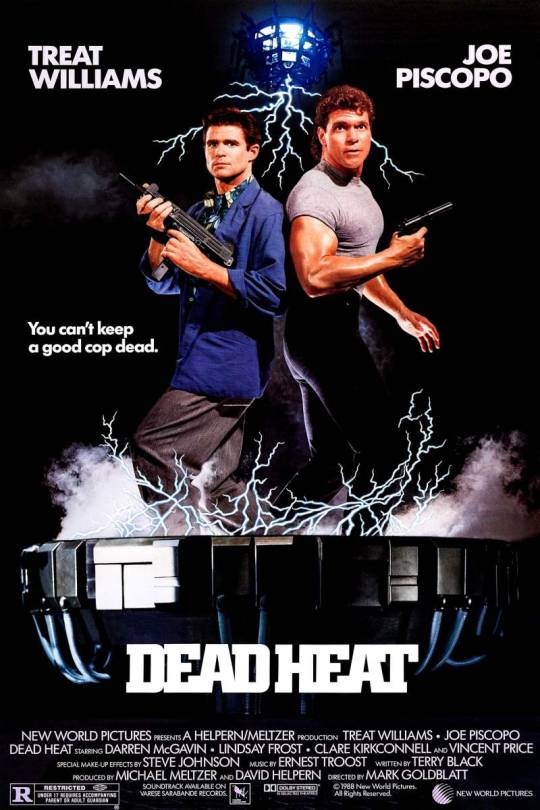
View On WordPress
4 notes
·
View notes